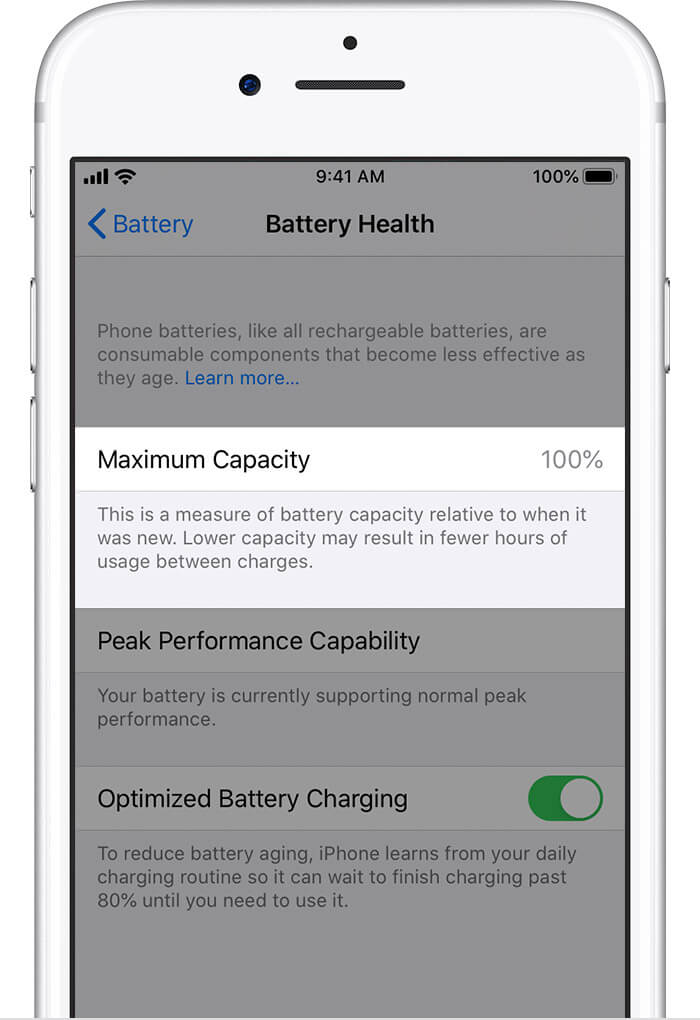Glory Info About Is 70 Battery Health Good
![How To Maintain Battery Health Of IPhone! [Save Life] YouTube How To Maintain Battery Health Of IPhone! [Save Life] YouTube](https://i.ytimg.com/vi/7qXGdQDb4p8/maxresdefault.jpg)
Is 70 Battery Health Good? Decoding Your Phone's Power Status
1. Understanding Battery Health
So, you're staring at your phone, and that little battery health percentage is stubbornly sitting at 70%. The big question nagging at you: is 70 battery health good? Well, let's unpack that. Think of your phone's battery like a rechargeable coffee mug. When it's brand new, it holds a lot of coffee (charge). As you keep refilling and emptying it (charging and discharging), the mug's capacity slowly decreases. 70% battery health basically means your "mug" can now only hold 70% of the original amount of "coffee" it could when it was fresh out of the box.
Now, the answer to whether 70% is "good" isn't a simple yes or no. It's more like a "depends." Depends on your usage, depends on your expectations, and even depends on your personality. Are you the type who needs their phone to last all day, from sunrise hike photos to late-night streaming sessions? Or are you usually near a charger and okay with topping it up throughout the day? Those scenarios drastically change how you'll perceive that 70%.
What is "battery health"? The keyword here is "health," and in this context it's an adjective. It's describing the state of your battery's capacity compared to when it was brand new. Manufacturers often use sophisticated algorithms to estimate this, taking into account charging cycles, temperature, and other factors that influence battery degradation. It's not a perfectly precise science, but it's a pretty good indicator.
One thing to keep in mind is that battery health isn't a linear decline. You might see it drop relatively quickly in the first year, then slow down after that. Also, different phone models and brands have different battery management systems and chemistry, which can affect how quickly they degrade. So, comparing your 70% to your friend's phone might not be a totally fair comparison.

Tips To Keep Your Ev Battery Healthy Artofit
The Real-World Impact of 70% Battery Health
2. What to Expect at 70%
Okay, so your phone is showing 70% battery health. What does that actually mean for your day-to-day usage? The most obvious consequence is shorter battery life. If your phone used to last a full day on a single charge when it was new, you can now expect it to die significantly sooner. We're talking possibly needing to charge it mid-afternoon, or even earlier if you're a heavy user.
Beyond just shorter runtime, you might also notice performance throttling. Some phones, particularly iPhones, will intentionally slow down the processor when the battery health degrades significantly. This is done to prevent unexpected shutdowns and maintain a stable user experience. If you're experiencing lag or sluggishness in apps, it could be a sign that your battery is contributing to the issue.
Another potential effect is inaccurate battery percentage readings. Your phone might jump from 30% to 10% very quickly, or even shut down unexpectedly despite showing some remaining charge. This happens because the battery's voltage can fluctuate more wildly as it ages, making it harder for the phone to accurately gauge the remaining capacity. Imagine trying to read the fuel gauge on a car with a leaky tank not exactly precise, is it?
Finally, consider charging speed. An older battery might not charge as quickly as it used to. This is because the internal resistance of the battery increases as it degrades, making it harder for electricity to flow efficiently. You might find yourself waiting longer to reach a full charge, even with a fast charger.

When is it Time to Replace Your Battery?
3. Making the Replacement Call
The million-dollar question (or, you know, the hundred-dollar question, give or take): when should you actually replace your phone's battery? There's no magic number, but 70% is often a point where many people start considering it. If you're constantly finding yourself tethered to a charger, or if you're experiencing noticeable performance issues, it's probably time.
Think about your usage patterns. If you're a light user who only checks email and social media occasionally, you might be able to squeeze by with 70% for a while longer. But if you rely on your phone for work, navigation, or entertainment, a new battery can make a huge difference in your daily life. It's all about balancing the cost of replacement with the convenience and usability of your phone.
Consider the cost of a new phone versus the cost of a battery replacement. If your phone is several years old and starting to show its age in other ways (cracked screen, slow processor, outdated software), it might make more sense to upgrade to a new device altogether. However, if you otherwise love your phone and it's still in good condition, a battery replacement can give it a new lease on life for a fraction of the price.
Don't forget to factor in the environmental impact. Replacing a battery is generally more sustainable than buying a whole new phone, as it reduces electronic waste. Many manufacturers and repair shops offer battery recycling programs, so you can dispose of your old battery responsibly.

How To Check Your IPhone Battery Health In 10 Painless Minutes GadgetGone
Tips to Maximize Your Existing Battery Life
4. Stretching the Life of Your Battery
Even if you're not quite ready to replace your battery, there are plenty of things you can do to squeeze the most out of your existing charge. First, take a look at your app usage. Some apps are notorious battery hogs, running in the background and constantly draining power. Identify these culprits and limit their background activity or uninstall them altogether.
Adjust your screen brightness. A brighter screen consumes significantly more power. Lowering the brightness, especially when you're indoors, can make a noticeable difference in battery life. Also, consider using dark mode or a dark wallpaper, as these can save power on phones with OLED displays.
Turn off features you're not using. Bluetooth, Wi-Fi, and location services all consume power even when they're not actively in use. Disable them when you don't need them. Similarly, close apps that are running in the background, as they can continue to drain power even when you're not using them directly.
Avoid extreme temperatures. Heat and cold can both damage your battery and shorten its lifespan. Don't leave your phone in direct sunlight for extended periods, and avoid exposing it to freezing temperatures. When charging, make sure your phone is in a well-ventilated area to prevent overheating.

Frequently Asked Questions (FAQs) About Battery Health
5. Your Battery Questions Answered
Q: How do I check my iPhone's battery health?
A: Go to Settings > Battery > Battery Health. There you'll see "Maximum Capacity," which indicates your battery's health compared to when it was new.
Q: Will replacing my battery erase my data?
A: Usually not, but it's always a good idea to back up your phone before any repair. A reputable repair shop will take precautions to protect your data during the battery replacement process.
Q: Can I replace the battery myself?
A: While DIY battery replacement is possible, it's generally not recommended unless you have experience with electronics repair. It can be tricky and potentially dangerous if not done correctly. It's usually best to leave it to the professionals.
Q: Is it bad to leave my phone charging overnight?
A: Modern smartphones have built-in charging protection that prevents overcharging. While it won't necessarily harm the battery, it's also not ideal to keep it at 100% for extended periods. Try to avoid consistently leaving it plugged in all night.
